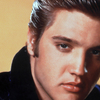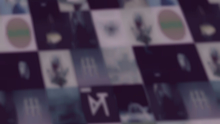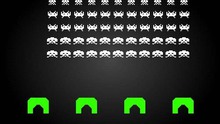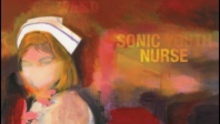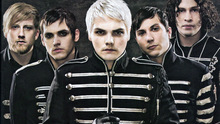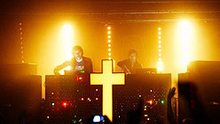If you’re trying to deal with the aftermath of the breakdown of a long-term relationship, then Björk’s album Vulnicura isn’t easy listening. Hearing her sing about the dissolution of her marriage to artist and filmmaker Matthew Barney with unflinching rawness might not be the best way to adjust to being single again. Douglas Dare certainly thinks it might not have been the best soundtrack for his own heartbreak: “In a way maybe I should have left it longer to listen to it.” At this year’s Piano Day, Dare covered Vulnicura’s ‘Lionsong’, a track that sees Björk trying to understand her position in the slowly collapsing relationship while also attempting to predict her partner’s feelings. Having gone through a breakup of his own long-term relationship, Dare “certainly related with the lyrics.” On the whole though, he is somewhat wary of performing covers. “I feel like I have to really connect with it, otherwise it feels a bit fraudulent,” he explains. “When I hear other artists’ songs, it’s their song.”
Perhaps Dare’s reluctance to cover songs stems from his desire to be true to himself. He explains that he won’t even cover Joni Mitchell’s ‘A Case Of You’, a song he’d been performing since he was 16, because James Blake had done his own version of it. Comparisons to Blake haunted Dare when he released his 2014 debut album Whelm, but those associations were a little unfair. Yes, both artists played the piano and dabbled in post-dubstep, but Whelm was undoubtedly aptly titled. It was at times harsher, more experimental, and emotively crushing than anything Blake had produced up until that point. Whelm’s minimalist edge - driven by piano and Dare’s own evocative, semi-theatrical voice - only exacerbated the devastating bleakness that underpinned the record. But at the same time, it was also a kind of compilation from Dare, perhaps not entirely representative of how he felt at that moment in time. “I think with my first album, it feels like a collection of the songs that I’d written. It was almost like a compilation of songs I’d written in my life,” he says. “The first songs I’d written were when I was 19, and they were on the record.”
Nevertheless, at the time it was hard to imagine that Dare could produce a gloomier album. Yet his new record, Aforger, often plummets further into the darkest recesses of the soul. It also happens to be what Dare himself describes as the first “proper” Douglas Dare record. It’s him being completely true to himself, both musically and thematically. It’s been inspired, amongst other things, by the aforementioned breakdown of his long-term relationship and coming out to his father, with Dare often laying his heart bare for all to see. Still, while music is more often than not a form of release or catharsis for its creators, Aforger occasionally feels a bit like peeking a little bit intrusively into Dare’s personal life. Luckily, Dare had a fool-proof way to stop thinking about the fact that people would actually be listening to these songs. “The secret behind that was to forget that anyone was ever going to hear it!” he laughs. “I never considered that people might hear it, which is now a reality.”
As its title hints, Aforger deals with the idea of “a forger” and, in a loose sense, that’s what Dare attempted to do with his own sound, challenging himself to not tread back over old ground. But to maintain a sense of cohesion in the record while still departing from what he’d previously produced, he set himself a number of parameters to work within. He even attempted to stop playing the instrument that had characterised Whelm: the piano. “Initially I said I didn’t want to have any piano on the record,” he says. “I thought it was going to be different, I wasn’t going to use the piano.” But ultimately, although Aforger is a distinctly more electronic record than Whelm, Dare must have felt he was creating a forgery of himself by refusing to use the instrument he felt the closest connection with. “I returned to the piano because it’s part of me in many ways,” he says. “I wasn’t ready to leave it, I didn’t want to say no. It’s an instrument that I wholeheartedly connect with.” Dare even experienced some good fortune when he found an upright piano in a North London shop. The store was owned by an old man with the last name Kyprios, and it turned out that Dare had gone to school with his estranged granddaughter. Mr. Kyprios then handed Dare a huge discount. It was a sign. With such serendipitous moment, how could he turn his back on the piano?
Although he may have broken one of his self-imposed rules, there was another strict parameter that Dare stuck much more closely to: “Don’t write a breakup album.” Initially, not writing a traditional breakup album must have seemed like a monumental task. Dare even acknowledges that he fell into the trap more than a few times. “I’ve written a lot of breakup songs, you know! I did! There are lots!” he laughs. “I look back through my notes now and I’m so glad I didn’t pursue some of them because they’re so angsty and teenage!” Binning these lyrics was an act of respect. Dare couldn’t show contempt for his relationship by writing juvenile platitudes, wanting something more meaningful. “I put [the songs] on because I was 100% behind them,” he explains. “The relationship meant so much to me that it had to respect that time that I put into it. I couldn’t put out a song that I wasn’t 100% behind.”
In light of this, the initial concept that inspired Aforger isn’t at all surprising. “I originally wanted to write about men!” Dare says. Considering how his relationship and his father had shaped his life at the time of writing the record, it seemed like a reasonable idea. It turns out that it wasn’t just the men of his life that Dare wanted to write about, though. Instead, the album was originally going to encompass “men in history, and fictional men too. I wrote many songs about my brother, my father, political figures, and all these different things,” he explains. “As it evolved I realised that it was a lot more personal than that subject and it became about something else.”
Aforger certainly transformed quite a bit, in no small part thanks to a dystopian novel by one George Orwell: 1984. Dare first encountered Orwell’s opus at school (“I’d enjoyed it to a certain extent, but not paid too much attention to it”) but it wasn’t until more recently that he’d come to appreciate its depth. Dare even admits to becoming just a little bit obsessed with the novel. “I picked it up, read it, and became engrossed by it,” he enthuses. “Then I went to see it at the theatre the first time it was showing in London, I watched the films, was reading the university notes, and I totally engrossed myself in all these Orwellian ideas.” It was the parallels between his personal life and Orwell’s dystopian society that really sparked Dare’s imagination. “Suddenly it became this focus for me and I really liked the idea of trying to escape from this forced reality, not really knowing what was real. It rang true with what had happened to me in my relationship,” he says. Orwell’s concept of “reality control” - where the upper echelons control the minds of citizens by keeping them enclosed within a tightly structured version of real life - was even the working title for the record. “But because of how the words sounded my manager was like: ‘It sounds like some kind of 1980s Sheffield punk band!’” he laughs.
The idea of a controlled reality is still pervasive on Aforger though. ‘New York’, one of the first songs Dare wrote for the record, poses a stark question: “Was New York a lie?” Was it? It’s difficult to tell. The track’s new video doesn’t give away much either, as a digitised version of Dare runs around a computer generated landscape that’s uncannily like a shrouded version of the real world, but just unreal enough to keep you guessing. Opener ‘Doublethink’ also alludes to Orwellian concepts, its title referencing the act in 1984 of simultaneously accepting two mutually contradictory beliefs at the same time. Indeed, the song’s lyrics see Dare claiming that “Freedom is slavery” and “Ignorance is my bliss”, presenting contrasting ideas as a representation of the turmoil and falsities in his relationship. “I found out that my partner at the time had been leading something of a double life,” he explains, “and when you find something like that out it makes you question your own life, makes you question what was real.” On the haunting ‘Binary’, which splits itself into two distinctive parts musically, Dare tackles the more toxic nature of modern technology and social media, asking “Why do we need to pretend?” “What we put out there for the world to see is a controlled reality. In most cases, it’s an ideal view of my life,” he says, knowing that, like most of us, he’s not immune to the charms of presenting the perfect life on Facebook or Twitter. “I even think about when I post things on my social media: ‘I’m going on tour here,’ ‘this is happening here.’ I certainly don’t put the times where a gig has been cancelled or I didn’t get certain opportunities,” he explains. “Everyone knows in the industry that there are so many things that don’t work out, but you just don’t talk about them! So people get this perception of you as having this ideal life, and that can be dangerous.” Social media was a particularly toxic presence in the aftermath of his breakup, again making him question whether he’d been living within a controlled reality. “I was looking at technology all the time, finding pictures and reminders and realising that again, what about this is real? It definitely was a toxic thing for me at that stage and I had to put it down.”
Through the haze of dual identities and unrealities, though, Aforger does have more than a few moments where Dare presents his feelings in an astonishingly direct way. Things don’t get much more agonisingly raw than ‘Oh Father’, where Dare addresses his father in the wake of coming out. Within an album awash in muted colours, it’s still one of the bleakest, most minimal tracks, allowing Dare to clearly tell his father that “I want you to love him as much as I do” without he himself forgetting that “You heard my first lines and taught me my worth”. Producing such a personal narrative couldn’t have been easy, and Dare openly admits to that. “I’d tried to write songs about that situation before. I’d written songs and they weren’t good enough,” he says, the desire to give his own experiences the respect they deserve appearing once again.
The track’s painful realism stems largely from the fact that the lyrics were taken from an actual discussion Dare had. “It was kind of stream of consciousness, direct quotes from a conversation with my father, most of it,” he explains, noting that listening to Vulnicura inspired him say it like it is. “There’s a beauty in that, there’s an ugliness to it as well. It certainly wasn’t poetic anymore,” he says. “But that excited me!” In the end, the melody came about almost by chance. “It was the only song I’ve ever written where I was walking to the studio – and this sounds cliché, I thought this would never happen, but it did - and was going [sings] ‘Oh father, I need you to be there.’ It just came to me! It sounds like a fairy tale but it was just stream of consciousness.”
Perhaps unsurprisingly, the rawness of ‘Oh Father’ has provoked a variety of reactions from Dare’s listeners. “I’ve had some really nice emails from people who’ve had similar experiences or completely different ones, but people have related to it. They’ve been thankful to me for being so candid, and that feels really good.” Of course, there are always a minority who look unkindly on such overt displays of emotion, but Dare is pragmatic about the situation. “I’ve had some very negative things as well, but that’s what you get when you put things out there like that, and I’m accepting of that. Not approving, but accepting.” It’s no surprise that Dare feels this way. He describes himself as “very optimistic and very positive,” something that’s obvious just by talking to him. But perhaps he’s also comfortable with some of the negative comments he’s received because, on Aforger, he’s being true to his own vision, both lyrically and musically. This is not a controlled reality: this is the real Douglas Dare.
Aforger is released on 14 October via Erased Tapes. For more information and upcoming tour dates, please visit his official website.Photo credit: Özge Cöne.




